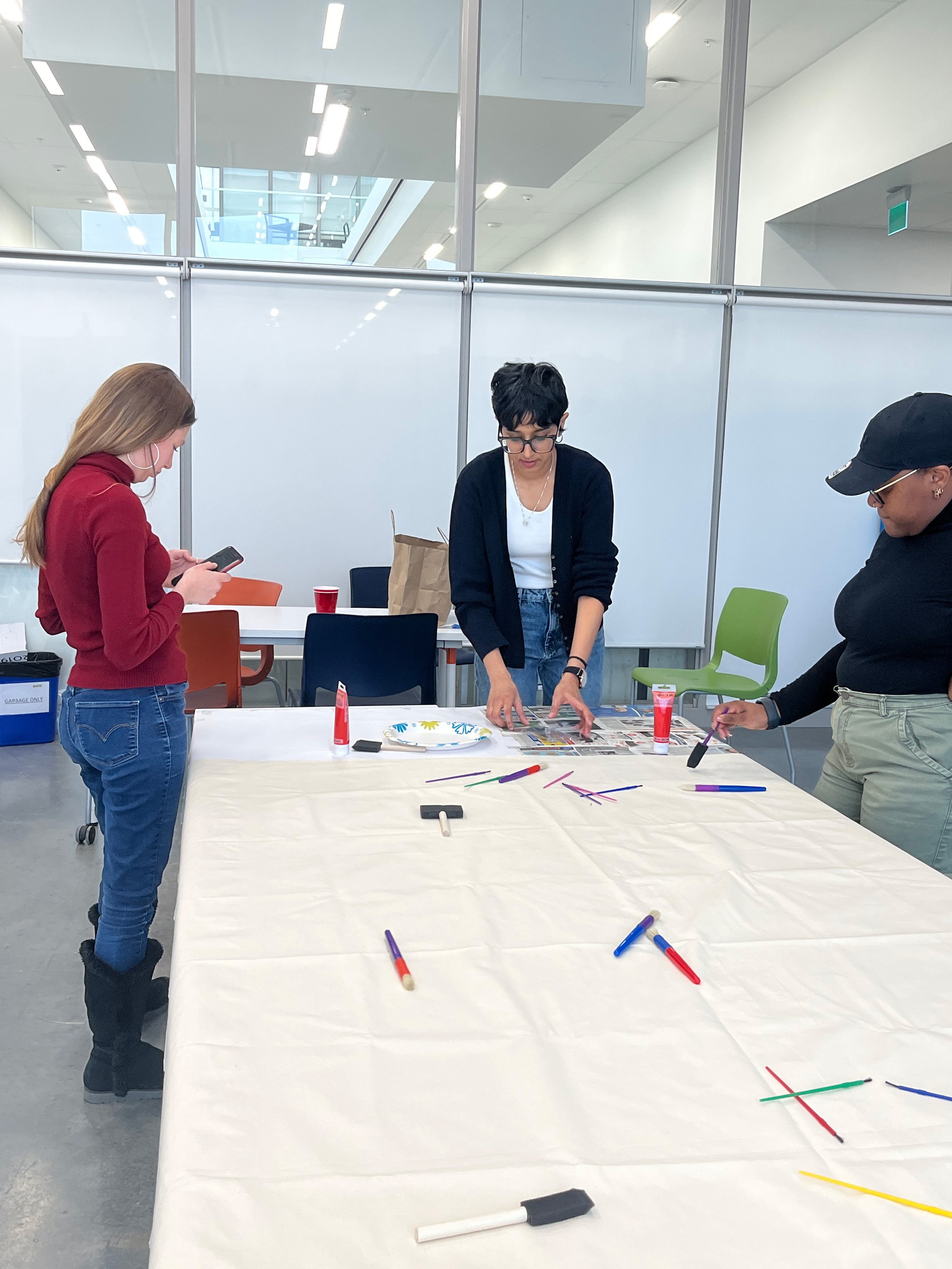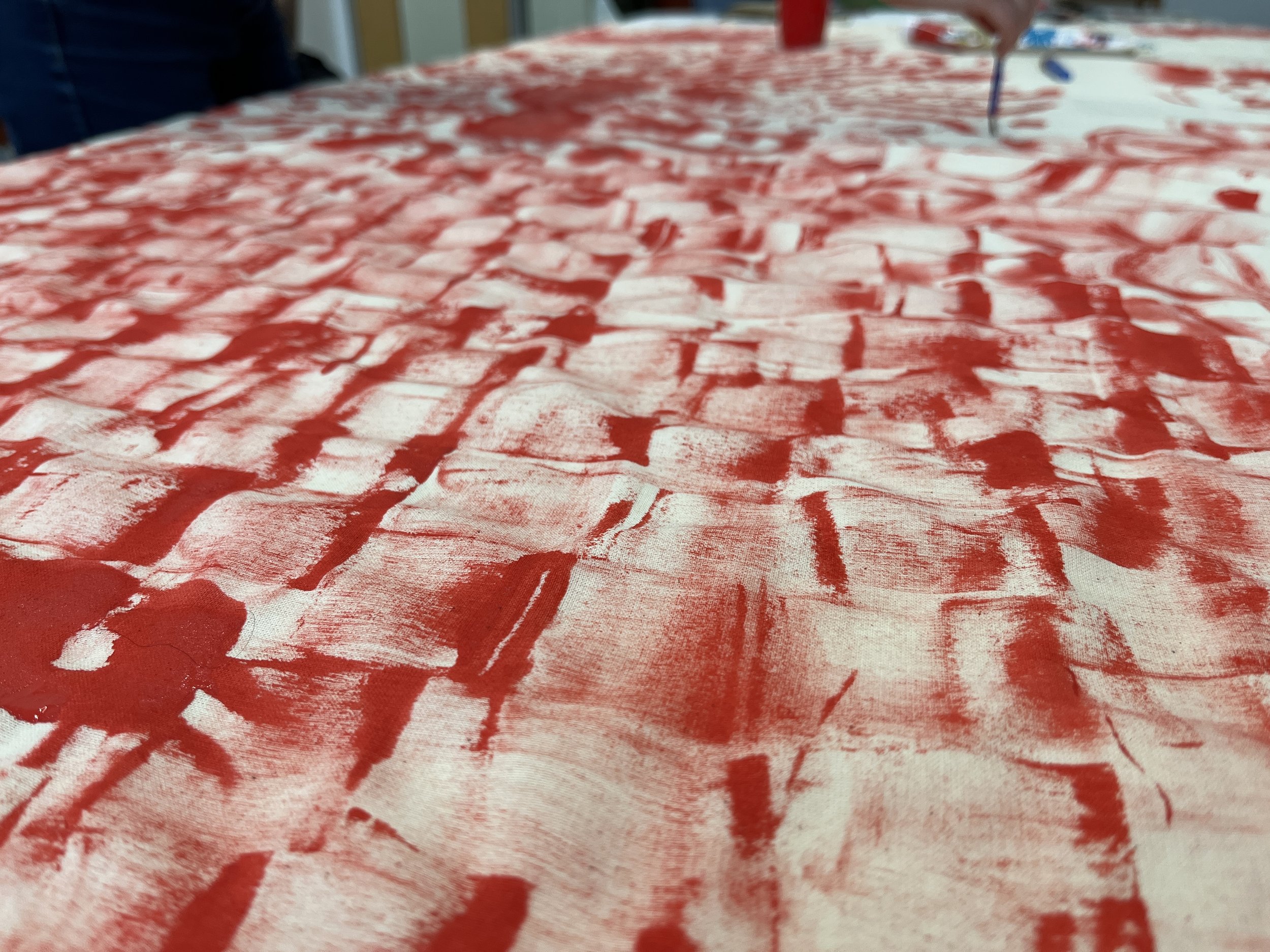PARTICIPATORY ARTS-BASED WORKSHOPMenstrual Stories
As my research progressed, an awareness arose regarding the imperative to transcend a personal perspective and embrace a more universal understanding of menstruation. This shift was motivated by the aspiration for the research to possess broader relevance and, consequently, yield more influential outcomes, shaping my future engagement in social design. Drawing on arts-based research methods, I conceived the Menstrual Stories workshop to establish a deeper connection with menstruators within my immediate peer network. The purpose was to delve into their experiences with menstruation, necessitating the creation of an environment imbued with trust and comfort, hence excluding non-menstruators at this stage.
Workshop Set-up: A 2m x 1m blank muslin cloth formed the canvas on which the participants would collectively create artwork while sharing their menstrual stories.
Open exclusively to menstruators, this workshop sought communal participation in sharing personal menstrual stories while contributing to the creation of an evocative visual art piece. Participants gathered around a large muslin cloth laid onto a table in the centre of the room and were equipped with paintbrushes and bottles of red paint. By symbolically staining the canvas with red ink, the workshop intended for participants to reclaim the socially shameful experience of stained clothing during menstruation. Attended by six women aged 22 to 31, including international students from Brazil, France, and Japan, as well as domestic students from different Canadian provinces, the workshop witnessed a diverse representation.
Commencing with a simple prompt – “Tell me about your first period” – the session embraced an unstructured conversation, allowing participants equal agency in directing the discourse, a key element of participatory research. Participants swiftly delved into narratives of their first menstrual experiences, recounting specific details of environments, people, emotions, and attitudes, with the storytelling moving organically around the room. Four participants shared similar experiences of being around supportive male family members during their first period. The conversation progressed from personal stories to current coping mechanisms for the diverse physical and psychological facets of menstruation. Discontent was expressed regarding the lack of sensitivity toward menstruators in institutional and professional spaces, leading to discussions about the necessity for mandatory monthly period leave to address painful menstrual conditions such as severe cramps, heavy bleeding, PCOS, and PMS. A post-session assessment revealed a sense of catharsis among participants, with a shared desire for regular sessions where they could openly discuss struggles, frustrations, and health conditions with fellow menstruating individuals.
The workshop provided nuanced insights into the lived experiences of menstruating women from diverse cultural backgrounds, ethnicities, and age groups, presented in an unstructured narrative format. Witnessing candid sharing and absorbing the diversity of menstrual stories and experiences provided a comprehensive understanding of how culture shapes the perception of menstruation across different contexts.









